Public Intoxication: Law Requires More Than Just Being Drunk in Public
Walking down the street in an intoxicated state could land you in hot water with the police, who may charge you with public intoxication. However, a close look at the Tennessee law on public intoxication reveals that simply being drunk in public often to fit the crime of public intoxication. The law requires the police to establish that you are a danger to yourself or property or that you have created a high level of disturbance. Just being drunk and intoxicated is not enough to fit the crime of public intoxication.
Tennessee law’s on public intoxication, Tenn. Code Ann. § 39-17-310, provides:
(a) A person commits the offense of public intoxication who appears in a public place under the influence of a controlled substance, controlled substance analogue or any other intoxicating substance to the degree that:
(1) The offender may be endangered;
(2) There is an endangerment to other persons or property; or
(3) The offender unreasonably annoys people in the vicinity.
(b) A violation of this section is a Class C misdemeanor.
The law requires the government to prove that the person charged with public intoxication poses a danger to other persons or property or “unreasonably annoy[ed]” other persons. This can be a high burden on the prosecution.
The Tennessee Court of Criminal Appeals reversed the public intoxication conviction of a man who was drunk outside his home around at midnight. In fact, the police were called several times to the home that evening by the defendant’s wife. Although the man was obviously intoxicated and was speaking at a high volume, the Court of Criminal Appeals focused on the fact that there was no evidence that the man had unreasonably annoyed other persons in the neighborhood. The court explained in State v. Wilson (1998) “[t]hat someone in the area could have heard the defendant does not establish that he unreasonably annoyed others. The statute requires that the defendant, in fact, ‘unreasonably annoy[] people in the vicinity,’ not that his conduct could have annoyed others. In consequence, the conviction for public intoxication must be reversed and dismissed.”
In another decision, the Court of Criminal Appeals reversed a public intoxication conviction of a man who was intoxicated in an apartment parking lot and there was evidence that he had engaged in some sort of altercation with two individuals – who were also intoxicated. The Court of Criminal Appeals reversed this conviction in State v. Pippen (2016), because there was insufficient evidence that the defendant posed a danger to any persons or property and that there was no evidence that he had unreasonably annoyed other persons in the apartment complex. The state tried to argue that the defendant had annoyed other residences at the location, because a large number of residences were outside when the police arrived. But, the Court of Appeals was not persuaded by the state’s argument. “The fact that there was a collection of onlookers at the complex was not sufficient to justify a conviction for public intoxication under [the public intoxication law],” the appeals court wrote. “. There was no testimony presented at trial from any of the alleged “onlookers” or evidence to establish that the Defendant’s behavior had unreasonably annoyed them.”
These cases show that just because an individual is drunk in public does not mean that the individual has committed the statutory crime of public intoxication in Tennessee. Remember, it is the duty of the state to prove all elements of the charged criminal offense beyond a reasonable doubt.
If you are facing a public intoxication arrest or a public intoxication fine, contact attorney Philip Clark at PNC Law. Philip Clark is not only an experienced criminal defense attorney but he also has nearly two decades of experience as a police officer. This experience in law enforcement and the criminal law codes gives his clients an edge when facing public intoxication charges.
Connect with Philip N. Clark right away!
(615) 785-2000

